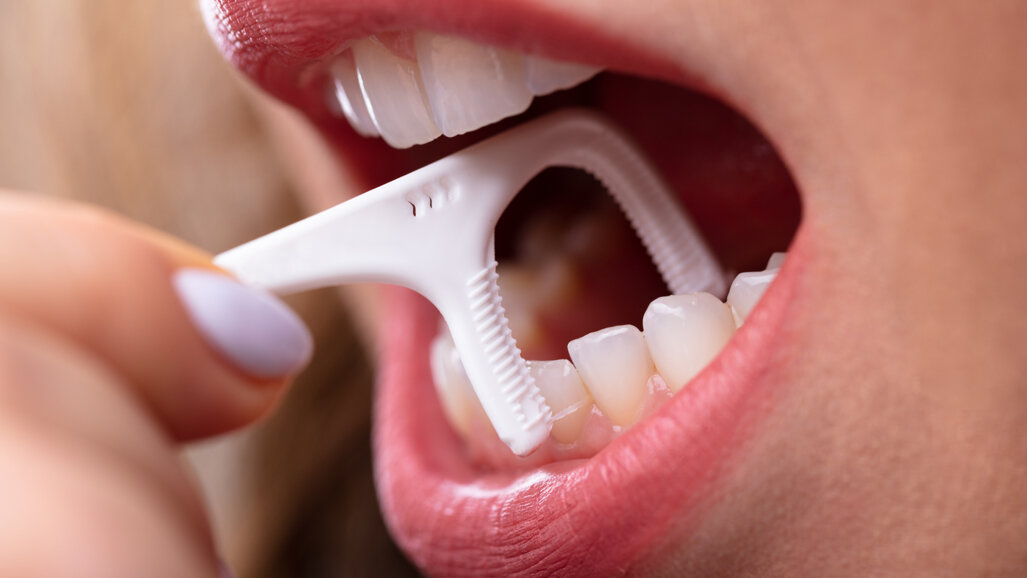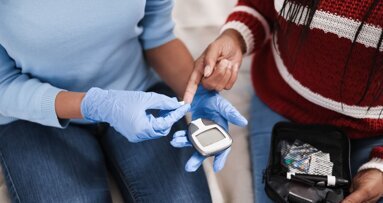FUKUOKA, Japan: World Diabetes Day, held annually on 14 November, highlights the need for greater awareness of the bidirectional relationship between diabetes and oral health. A new clinical study has found that adults with Type 2diabetes who clean between their teeth at least three times a week with floss or interdental brushes spend more time within the target 24-hour blood glucose range and have more stable glucose profiles. Adults with 20 or more natural teeth also showed lower glucose levels throughout the day, underlining the importance of maintaining oral health in diabetes management.
Treating periodontal disease in patients with diabetes has been scientifically shown to lower their levels of glycated haemoglobin, supporting the role of periodontal treatment as a beneficial adjunct to diabetes management. However, most previous research has focused on clinical interventions. According to the researchers, the impact of everyday oral hygiene practices on day-to-day glucose management in Type 2 diabetes has so far been little studied. In this new clinical study, Sunstar Group collaborated with Clinic Masae Minami and the Minami Diabetes Clinical Research Center, both based in Fukuoka, to investigate the association between oral care routines and glucose profiles and to explore whether inflammation could help explain this link.
For the study, 104 adults with Type 2 diabetes wore continuous glucose monitoring sensors for 14 days. Clinical, biochemical and behavioural data—including oral hygiene habits, dental attendance, remaining teeth, diet, daily activities and metabolic markers—was collected through questionnaires, medical records, and blood and urine tests. The study found that adults who practised interdental cleaning at least three times per week had longer periods within the target glucose range and lower 24-hour average glucose levels—as well as lower fasting glucose levels and more stable day-to-day glucose profiles.
Additionally, the researchers reported that individuals with 20 or more natural teeth showed more favourable 24-hour glucose profiles than those with fewer teeth. More frequent dental visits and brushing teeth twice daily were similarly associated with healthier metabolic and inflammatory markers. These associations remained significant after adjusting for age and sex. Notably, the benefits of interdental cleaning were not fully explained by inflammatory markers, suggesting that additional biological or behavioural pathways may contribute to the observed effects.
According to the International Diabetes Federation, one in nine adults globally—590 million people—have diabetes, nearly half of whom are unaware that they have the condition. It projects that, by 2050, one in eight adults worldwide—approximately 853 million people—will have diabetes, reflecting a 46% increase in the total number of cases.
The study, titled “Oral hygiene practices and glucose profiles assessed through continuous glucose monitoring in adults with Type 2 diabetes”, was published online on 28 August 2025 in Diabetes Spectrum, ahead of inclusion in an issue.
Editorial note:
More information about World Diabetes Day can be found here.
Topics:
Tags:
IAȘI, Romania: Diabetes is a growing global public health concern and is closely linked to oral disease. A recent study conducted by researchers in Romania...
In light of rising rates of chronic disease and growing awareness of the health risks associated with excessive sugar consumption, governments around the ...
ŌTSU, Japan: The links between diabetes, obesity and periodontal disease are well established; however, most studies on their associations have had sample ...
VIENNA, Austria: On this World Diabetes Day, the European Federation of Periodontology (EFP) calls attention to the growing body of scientific evidence that...
At the forefront of innovative approaches to healthcare, Haleon is making significant strides in integrating oral healthcare with broader medical care. ...
Live webinar
Tue. 10 February 2026
7:00 pm EST (New York)
Prof. Dr. Wael Att, Dr. Robert A. Levine DDS, FCPP, FISPPS, AOD, Dr. Larissa Bemquerer ITI Scholar at Harvard
Live webinar
Wed. 11 February 2026
11:00 am EST (New York)
Dr. med. dent. Sven Mühlemann
Live webinar
Wed. 11 February 2026
12:00 pm EST (New York)
Prof. Dr. Samir Abou Ayash
Live webinar
Fri. 13 February 2026
12:00 pm EST (New York)
Live webinar
Mon. 16 February 2026
12:00 pm EST (New York)
Live webinar
Tue. 17 February 2026
12:00 pm EST (New York)
Live webinar
Wed. 18 February 2026
9:00 am EST (New York)
Dr. Anna Lella, Ms. Francesca Nava



 Austria / Österreich
Austria / Österreich
 Bosnia and Herzegovina / Босна и Херцеговина
Bosnia and Herzegovina / Босна и Херцеговина
 Bulgaria / България
Bulgaria / България
 Croatia / Hrvatska
Croatia / Hrvatska
 Czech Republic & Slovakia / Česká republika & Slovensko
Czech Republic & Slovakia / Česká republika & Slovensko
 France / France
France / France
 Germany / Deutschland
Germany / Deutschland
 Greece / ΕΛΛΑΔΑ
Greece / ΕΛΛΑΔΑ
 Hungary / Hungary
Hungary / Hungary
 Italy / Italia
Italy / Italia
 Netherlands / Nederland
Netherlands / Nederland
 Nordic / Nordic
Nordic / Nordic
 Poland / Polska
Poland / Polska
 Portugal / Portugal
Portugal / Portugal
 Romania & Moldova / România & Moldova
Romania & Moldova / România & Moldova
 Slovenia / Slovenija
Slovenia / Slovenija
 Serbia & Montenegro / Србија и Црна Гора
Serbia & Montenegro / Србија и Црна Гора
 Spain / España
Spain / España
 Switzerland / Schweiz
Switzerland / Schweiz
 Turkey / Türkiye
Turkey / Türkiye
 UK & Ireland / UK & Ireland
UK & Ireland / UK & Ireland
 Brazil / Brasil
Brazil / Brasil
 Canada / Canada
Canada / Canada
 Latin America / Latinoamérica
Latin America / Latinoamérica
 USA / USA
USA / USA
 China / 中国
China / 中国
 India / भारत गणराज्य
India / भारत गणराज्य
 Pakistan / Pākistān
Pakistan / Pākistān
 Vietnam / Việt Nam
Vietnam / Việt Nam
 ASEAN / ASEAN
ASEAN / ASEAN
 Israel / מְדִינַת יִשְׂרָאֵל
Israel / מְדִינַת יִשְׂרָאֵל
 Algeria, Morocco & Tunisia / الجزائر والمغرب وتونس
Algeria, Morocco & Tunisia / الجزائر والمغرب وتونس
 Middle East / Middle East
Middle East / Middle East









































To post a reply please login or register